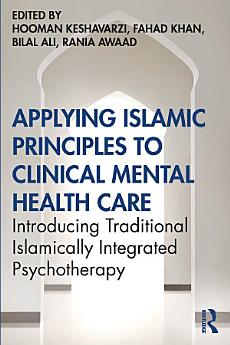Applying Islamic Principles to Clinical Mental Health Care: Introducing Traditional Islamically Integrated Psychotherapy
About this ebook
TIIP is an integrative model of mental health care that is grounded in the core principles of Islam while drawing upon empirical truths in psychology. The book introduces the basic foundations of TIIP, then delves into the writings of early Islamic scholars to provide a richer understanding of the Islamic intellectual heritage as it pertains to human psychology and mental health. Beyond theory, the book provides readers with practical interventional skills illustrated with case studies as well as techniques drawn inherently from the Islamic tradition. A methodology of case formulation is provided that allows for effective treatment planning and translation into therapeutic application. Throughout its chapters, the book situates TIIP within an Islamic epistemological and ontological framework, providing a discussion of the nature and composition of the human psyche, its drives, health, pathology, mechanisms of psychological change, and principles of healing.
Mental health practitioners who treat Muslim patients, Muslim clinicians, students of the behavioral sciences and related disciplines, and anyone with an interest in spiritually oriented psychotherapies will greatly benefit from this illustrative and practical text.
About the author
Hooman Keshavarzi, Psy.D is currently an assistant professor at Ibn Haldun University (Istanbul, Turkey), adjunct faculty at Hartford Seminary, a fellow of the International Association of Islamic Psychology and the Executive Director and Founder of Khalil Center.
Fahad Khan, Psy.D is a faculty member at Concordia University Chicago and College of DuPage, a fellow of the International Association of Islamic Psychology, and serves as an editor for the Journal of Muslim Mental Health.
Bilal Ali is a religious consultant and president of the Board of Directors at Khalil Center and the liaison for the Department of Hadith and academic advisor at Darul Qasim.
Rania Awaad, MD is a clinical associate professor of psychiatry at Stanford University School of Medicine, and the director of the Muslim Mental Health Lab and Wellness Program, and co-director of the Diversity Clinic. She is also the regional director of Khalil Center Bay Area.





